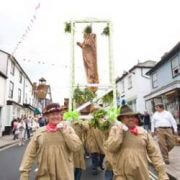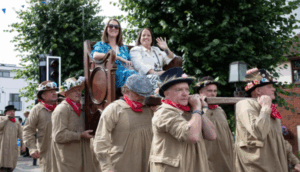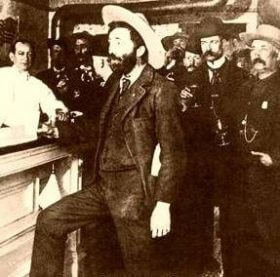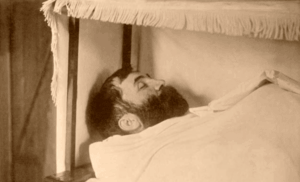Amelia Earhart Day
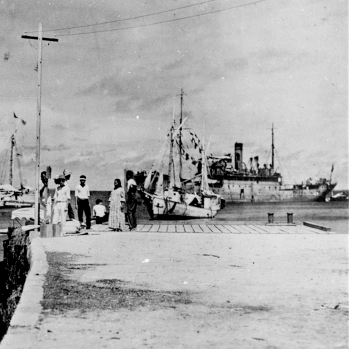
image – history.com [since scrubbed from site]
Earhart vanished without a trace on July 2, 1937, during her attempt to circumnavigate the globe. Despite the likelihood that the plane was never found because it crashed into the Pacific Ocean and sank, theories about her disappearance persist to this day, running the gamut from midair abduction by aliens to a secret move to New Jersey to live under an assumed name.
One popular hypothesis claims the Japanese captured Amelia Earhart and her navigator, Fred Noonan, torturing and executing them or holding them in secret for the rest of their lives. Some claim Earhart was a spy for the U.S. Others say she was one of many English-speaking women forced to make radio broadcasts as Tokyo Rose, although propagandists wishing to demoralize American servicemen surely would have seen the benefit in using her real name.
On July 9, 2017, the History Channel aired “Amelia Earhart: The Lost Evidence,” featuring a photograph that showed two Caucasian people on a dock at Jaluit Atoll, with a vessel carrying something that resembled plane wreckage in the background.
A military history blogger scouring archival images soon found the photo had been taken in 1935, two years before the crash. This revelation called into question the veracity of the entire documentary. The cable channel has since canceled reruns and deleted streaming video of its program. It also released this statement:
“HISTORY has a team of investigators exploring the latest developments about Amelia Earhart and we will be transparent in our findings. Ultimately, historical accuracy is most important to us and our viewers.”
As of July 2025, I have been unable to find any information regarding the conclusion of the investigation. Please let me know if you’ve seen any so I can update this post.
No matter the truth of her death, we should all celebrate the life and accomplishments of this extraordinary woman.
Happy Amelia Earhart Day!

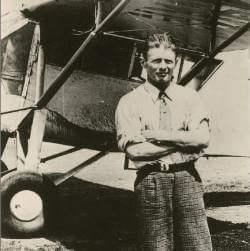 Today is Wrong Way Corrigan Day. On July 17, 1938, Douglas Corrigan (January 22, 1907 – December 9, 1995), a pilot and aircraft mechanic who had recently flown from California to New York, took off from Floyd Bennett Field in Brooklyn, ostensibly to make the transcontinental trip back to Long Beach. Things didn’t go according to plan.
Today is Wrong Way Corrigan Day. On July 17, 1938, Douglas Corrigan (January 22, 1907 – December 9, 1995), a pilot and aircraft mechanic who had recently flown from California to New York, took off from Floyd Bennett Field in Brooklyn, ostensibly to make the transcontinental trip back to Long Beach. Things didn’t go according to plan.